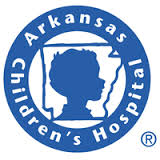Peanut Oral Immunotherapy Study of Early Intervention for Desensitization
| Status: | Recruiting |
|---|---|
| Conditions: | Allergy, Allergy, Neurology |
| Therapuetic Areas: | Neurology, Otolaryngology |
| Healthy: | No |
| Age Range: | 1 - 3 |
| Updated: | 3/29/2019 |
| Start Date: | December 27, 2018 |
| End Date: | November 2021 |
| Contact: | Ryan Taylor |
| Email: | medicalinformation@aimmune.com |
| Phone: | 6503628705 |
Peanut Oral Immunotherapy Study of Early Intervention for Desensitization (POSEIDON)
The purpose of this study is to determine the efficacy and safety of AR101 in peanut‑allergic
children aged 1 to < 4 years.
children aged 1 to < 4 years.
To determine the efficacy and safety of AR101 in a characterized oral desensitization
immunotherapy (CODIT™) regimen compared with placebo in peanut‑allergic children aged 1 to <
4 years.
immunotherapy (CODIT™) regimen compared with placebo in peanut‑allergic children aged 1 to <
4 years.
Inclusion Criteria:
- Aged 1 to < 4 years at randomization.
- Written informed consent from the legal guardian/parent (or both parents where
required by local authorities). Provide assent where required and as appropriate per
local requirements.
- Documented history of physician‑diagnosed IgE‑mediated peanut allergy that includes
the onset of characteristic signs and symptoms of allergy within 2 hours of known oral
exposure to peanut or peanut‑containing food. In general, characteristic signs and
symptoms of IgE‑mediated allergic reactions are objective and affect the target organs
of skin, GI tract, upper/lower respiratory tract, cardiovascular system, or a
combination of target organs.
- Mean wheal diameter on skin prick test (SPT) to peanut of at least 3 mm greater than
the negative control (diluent) or serum IgE to peanut ≥ 0.35 kUA/L, obtained within 12
months before randomization.
Exclusion Criteria:
- History of severe or life‑threatening anaphylaxis.
- History of hemodynamically significant cardiovascular or renovascular disease,
including uncontrolled or inadequately controlled hypertension.
- History of EoE; other eosinophilic GI disease; chronic, recurrent, or severe
gastroesophageal reflux disease (GERD); or symptoms of dysphagia (eg, difficulty
swallowing, food "getting stuck").
- History of a mast cell disorder including mastocytosis, urticaria pigmentosa, chronic
idiopathic or chronic physical urticaria beyond simple dermatographism.
- Mild asthma that is uncontrolled or difficult to control.
- Moderate or severe persistent asthma.
- History of food protein‑induced enterocolitis syndrome .
- History of chronic disease that is or is at significant risk of becoming unstable or
requiring a change in a chronic therapeutic regimen.
- Recurrent GI symptoms considered clinically significant.
- History of high‑dose corticosteroid use.
We found this trial at
6
sites
Click here to add this to my saved trials
Click here to add this to my saved trials
Click here to add this to my saved trials
Chapel Hill, North Carolina 27599
Click here to add this to my saved trials
Arkansas Children's Hospital Arkansas Children's Hospital (ACH) is the only pediatric medical center in Arkansas...
Click here to add this to my saved trials
Click here to add this to my saved trials
